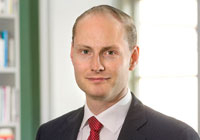
Photo credits:
Sarah Thorén
Fredrik Charpentier Ljungqvist
Pro Futura Scientia Fellow, SCAS.
Professor of History, especially Historical Geography, Stockholm University.
Associate Professor of Physical Geography, Stockholm University.
Fredrik Charpentier Ljungqvist is a historian and palaeoclimatologist at Stockholm University. He
started his academic career as a medieval historian, but has increasingly conducted research within
palaeoclimatology (climate history), using mainly natural “proxy” archives (tree-ring data etc.) to re-
construct and understand temperature and hydroclimate variability during the past two millennia, as
well as to study climatic impacts on human history. His current research interests range from the link
between past climate variability and historical harvest yields, the effect of plague outbreaks
on the
history of European building activity, the efficiency and integration of the early modern European grain
market, to socio-political aspects of historical food (in)security. The Royal Swedish Academy of Letters,
History and Antiquities awarded Ljungqvist the Rettig Prize 2022 for his “interdisciplinary work concern-
ing climate and disease in a long-term perspective that demonstrate the importance of humanistic and
historical perspectives on crucial contemporary issues”. Ljungqvist is an experienced university teacher
and is also actively engaged in popular science and public outreach activities. He is the author of four
popular science books – for the first two of which he was awarded the Clio Prize in 2016 – and frequently
gives popular science lectures and makes contributions to media.
Among Ljungqvist’s more recent key publications are the articles “Linking European building activity
with plague history” in Journal of Archaeological Science (2018), “Climate and society in European
history” in Wiley Interdisciplinary Reviews Climate Change (2021), “The significance of climate variability
on early modern European grain prices” in Cliometrica (2022), and the monograph Quantitative Approaches
to Medieval Swedish Law (2022).
As a Pro Futura Scientia Fellow, he leads the interdisciplinary project “Disentangling socio-political and
climatic factors for food insecurity in early modern Europe (c. 1500–1800)”. During 2023 he starts the
Marianne and Marcus Wallenberg Foundation funded project “Adaptations to climate change in the northern
Baltic region ca 1500–1900”.
This information is accurate as of the academic year 2023-24.






